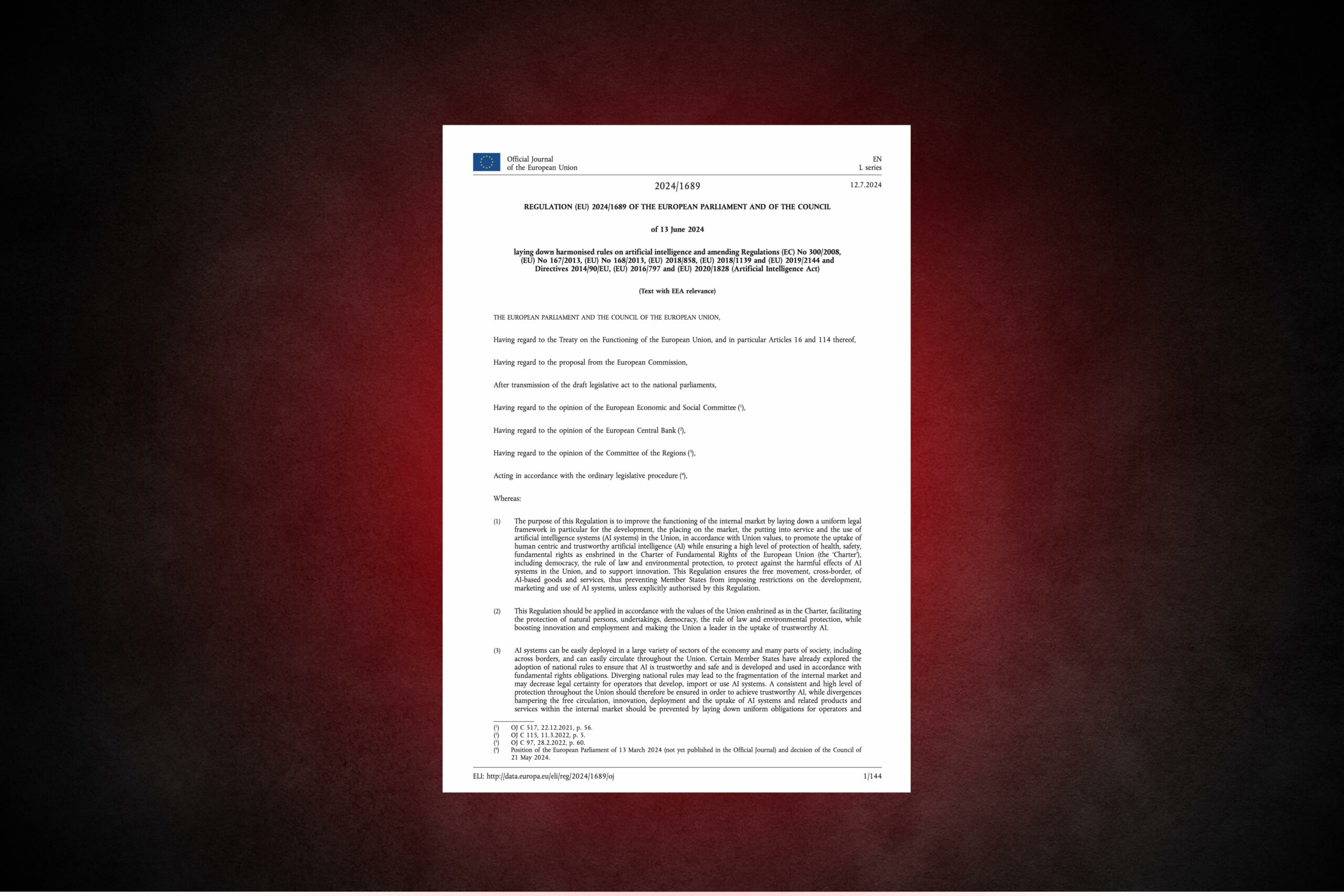Dear readers, the Network Law Review is delighted to present you with this month’s guest article by Ramsi A. Woodcock, Associate Professor of Law at the University of Kentucky Rosenberg College of Law and Assistant Professor of Management at the University of Kentucky Gatton College of Business and Economics.
****
There are two men alone in a room. One has a pile of cash. The other has a gun. Who is in control?
Most people would say: the man with the gun.
Antimonopolists say: the man with the cash.
This is the mistake at the heart of the contemporary antimonopoly movement.
What distinguishes contemporary antimonopolism from the Chicago School approach to antitrust, which emphasizes efficiency, as well as from the post-Chicago School approach, which emphasizes wealth distribution, is the antimonopolist’s insistence that antitrust is about political power.
Antimonopolists are pretty vague about how concentration and political power are linked. But judging by one of the canonical texts in this genre—Luigi Zingales’s “Toward a Political Theory of the Firm,” which will be the focus here—antimonopolists think there are two channels.
The channel that plays the biggest role for antimonopolists is money (I’ll get to the other in a minute). Big firms have greater profits, they reason, and greater profit means more cash available to buy government favor.
Zingales acknowledges that there is surprisingly little corporate money in politics relative to the economic resources commanded by businesses. Big corporations spend relatively little on campaigns or lobbying. He also acknowledges that laws against bribery seem to work pretty well.
But he argues that corporations are still able to funnel cash to public servants by hiring them after they leave office. Zingales notes that Bill Clinton’s treasury secretary, Robert Rubin, took a $15 million-a-year job at Citigroup after helping tear down bank regulations.
The trouble with this argument is that it assumes that firms are extorting the government instead of the government extorting firms.
But the government has the guns.
The State as the Ultimate Monopoly
The antitrust analysis of government that I laid out in a working paper and book chapter helps to clarify.
The state is a monopolist of physical security within a particular geographic area. It is the oldest and most powerful of all monopolies because physical security is the input to all other inputs. Complete deprivation of physical security means immediate death. The dead produce nothing.
For most of human history, the state was a for-profit business. Its owners were monarchs and aristocrats. Like all for-profit businesses, the state sought to extract the maximum profit from consumers (the people) by charging them the highest possible taxes in exchange for security. Like any business, the state withheld its product from those who refused to pay: it killed or jailed them. It still jails tax avoiders today.
As Henry Hansmann has observed, in a democracy, consumers of the state’s security product have converted the state from a for-profit business into a consumer cooperative. They choose management. And, as I note in my working paper, consumers insist that the state generates no profits from the taxes that consumers pay.
The prohibition on bribery mentioned by Zingales is part of this broader rule against state profit-taking. All revenues the state generates must be invested or not collected at all.
Democracies divide wealth more justly than monarchies, but they are no less monopolists of physical security. Like monarchies, they control the application of violence within their borders. If a democracy wants something done within those borders, it will be done.
Control the Man with the Gun, Not the Man with the Cash
The fact that the state monopolizes an essential input required by all other businesses, including all other monopolies, calls into question the antimonopolist’s view that private monopolies wield power to extract concessions from the state.
Antimonopolists assume that Rubin’s $15 million-a-year salary bought Citigroup less regulation than Rubin would otherwise have preferred. But that runs counter to the basic assumption that all antitrusters make about monopoly power: those who have it use it to maximize their profits.
Applying that assumption, we would expect Rubin’s $15 million salary to have a rather different meaning. Specifically, we would expect that it was part of a deal imposed by Rubin on Citigroup, pursuant to which he wielded the power of the state to extract the maximum possible profits from the company, paid both in the form of obedience to his regulatory wishes and a lucrative job after leaving government service.
That is, we would expect that, to the extent that Rubin could leverage the power of the state for his own benefit, he imposed whatever regulatory policies on Citigroup that he thought best for himself and extracted the maximum possible rent from the banking industry to boot. Citigroup didn’t dictate policy to Rubin. He dictated it to Citigroup, with the aid of the implicit threat of violence that backs all state action.
In the same way, most of the security that the state sells to the people is security from the state, not security from others. You pay your taxes hoping that the state will protect you from crime and foreign invasion. But you mostly pay your taxes because, if you don’t, the state will come for you.
Of course, Rubin’s support for tearing down bank regulations helped Citigroup. But Rubin would have provided that support only to the extent that his own interests happened to be aligned with Citigroup’s, not because he needed to provide it in order to extract a payout from the firm. Relief from the threat to crush the industry through regulation implicit in Rubin’s power as Treasury secretary would have been sufficient quid pro quo for Citigroup.
Rubin’s policies appeared to be concessions to Citigroup only because Rubin’s incentives would probably have been aligned with Citigroup’s. As a financial policymaker, he could most easily use his position to extract payoffs from the banking industry. So he had the incentive to maximize the profitability of the industry. But what matters for purposes of determining how to fix the corruption problem is that Rubin was in control, not Citigroup.
If the problem is that monopolies are imposing their will on the government, then the fix is antitrust. But if the problem is that a rogue government official is imposing its will on monopolies and then pocketing the proceeds for himself instead of spending them on consumers, then the fix is not antitrust.
The fix is for the public to reassert control over their government officials and, specifically, to ensure that officials use any value they extract from monopolies to benefit consumers, not themselves.
The way to do that is to raise taxes. When government officials start taking bribes from big firms, it is a sign: taxes aren’t high enough.
Citigroup clearly had an extra $15 million a year to spend. If Citigroup had been forced to pay it to the Treasury, rather than to the Treasury secretary, it would ultimately have been spent on the people instead of Rubin.
The problem of corporate money in politics is ultimately a problem of imbalance of power between the state and the people, not between big corporations and the state.
Fear of Big Business as a Consequence of the Platformization of the State
Why isn’t this obvious to antimonopolists? The answer, I think, has to do with the great success of Americans in dominating their state.
The consumer-owners of the democratic state demand that the state provides access to the security input to downstream firms in the same manner that antitrust asks any bottleneck provider of a business input to provide access: on fair, reasonable, and nondiscriminatory terms.
In political terms, that means economic freedom. Subject to a few exceptions here and there, anyone can run a business, and all businesses will be subject to the same tax schedule.
The more a state becomes a platform of this kind, the further the state recedes from economic life. Unable to discriminate between businesses, the state stops intruding into their affairs. Because all businesses require security to function, businesses all depend absolutely on the state. But the more completely the state takes on the role of the platform, the less apparent this becomes.
America started down the path to platformization earlier and in a more sustained way than any other state. She has not had a king since 1783. Administrative regulation of business involves creating exceptions to the principle of nondiscriminatory supply of security. America initially adhered so scrupulously to the commandment to be a platform that she engaged in almost no administrative regulation at all. Indeed, sociologists characterize the first century of America’s existence as “rule by courts.” With respect to businesses run by people enjoying the franchise, America would have none of that.
Against this backdrop, it should be no surprise that when industrialization swept the world in the second half of the 19th century, it was only in America that this inspired fear that the big firm would replace the state. When the state means the local courthouse, a continent-spanning railroad company is going to be bigger than anything you have ever seen. The famous image of the Standard Oil octopus poised to swat a cowering White House captures the relative size of these institutions in the American mind.
By contrast, in Europe, which in the 19th century was a club of mostly constitutional monarchies in which the monarchs still had real power, there was never any doubt that the state remained fundamental and would never tolerate a challenge to its authority from business interests. It never occurred to Karl Marx to fear, as Americans did, that corporations would crush the state. He merely thought that their investors controlled the state.
Even today, a democratic Europe has not platformized the state to the extent seen in America. In America, the government is paralyzed by design. This is the well-known system of “checks and balances.” Few European democracies reproduce it. In most European countries, either an independent executive or a party-dominated legislature wields considerably more power than any American branch of government.
It should, therefore, also be no surprise that America invented antitrust and practiced it for more than half a century before any other country adopted it in earnest. Nor should it be a surprise that breakup became the ultimate antitrust remedy in America but was spurned in Europe in favor of massive fines. In America, the big firm has always been an existential threat. Elsewhere, it is merely a regulatory problem.
The great expansion of the administrative state in America over the past century has injected an element of schizophrenia into Americans’ relationship with the state. As contemporary antimonopolism suggests, the old tradition of seeing the state as weak and vulnerable is alive and well. But it coexists now with an intense fear of the state’s newfound willingness to exercise its regulatory powers.
This, too, has fed contemporary antimonopolism, which fears the state’s powers to tax as much as it fears the monopoly’s power to pay bribes. Thus Zingales professes to seek a “goldilocks” balance between communist dictatorship and plutocracy. He fails to appreciate that what he considers two extremes are actually different forms of the same thing: a for-profit state. The result is a movement that is unwilling fully to assert the state’s powers against those of big business at the same time that it seeks to protect the state against big business.
If the antimonopoly movement understood that the real poles are the for-profit state and the consumer cooperative, the movement would not hesitate to use the power of the state to tax for the benefit of the people.
Indeed, there is no problem of money in politics that more taxation cannot solve. Herein is the weak link in antimonopolism. If concentration is tied to politics through the money channel, then the state’s appropriation of money from firms for the benefit of consumers solves it.
If there is no political will to increase taxes, then consumers are too weak to govern the consumer cooperative effectively, in which case America cannot be saved from a profit-taking government.
The Organization Channel
Antimonopolists like Zingales also argue that big firms are better able than groups of small firms to organize industry interests to lobby Congress for favorable legislation. That may be true; it is more expensive to coordinate large groups than small ones.
What is less clear is that the coordination advantages enjoyed by firms in concentrated industries would remain substantial after more taxation has eliminated the funds that firms surely also need to lobby and bribe.
Indeed, political scientists find a relationship between concentration and trade association activity, but they also find a link between the size of a market and trade association activity, suggesting that the money channel is really what is at play. This makes sense. The benefit of being able to convince an entire industry to take the same line is precisely that it permits the industry to pool its financial resources in support of that line.
The ability of an industry to speak in one voice may have some additional political value. But that value is democratic in character. If a government official proves more willing to accommodate a proposed policy because everyone in the industry wants it, that reflects a desirable orientation toward accommodating consensus. The same official would presumably place even greater weight on a proposal supported by labor in addition to capital.
A related concern not mentioned by Zingales was articulated by antitrust progressives at the 1974 Airlie House Conference. They largely accepted the ascendant Chicago School view that the negative economic effects of concentration are minimal, curiously failing to question the distributive effects of monopoly. But they maintained that the goal of antitrust had always been political rather than economic.
Specifically, as Donald Dewey wrote in the conference volume, antitrust is ultimately “all about . . . discretionary authority in the private sector of the economy.” He elaborated: “many of us fear that, at some time in our lives, we may find ourselves opposing [the big firm’s] owners and managers in an unequal contest.”
Antimonopolists’ appeal to antitrust to save them from “discretionary authority in the private sector” is, of course, an appeal to the superior power of the state. But in antitrust’s orientation toward eliminating private power rather than merely taxing or otherwise regulating it, we see a failure to appreciate the full implications of the superiority of state power.
Americans have the guns. But they still fear the money.
Ramsi A. Woodcock
***
| Citation: Ramsi A. Woodcock, Antimonopolism as a Misunderstanding of Power, Network Law Review, Spring 2023. |








